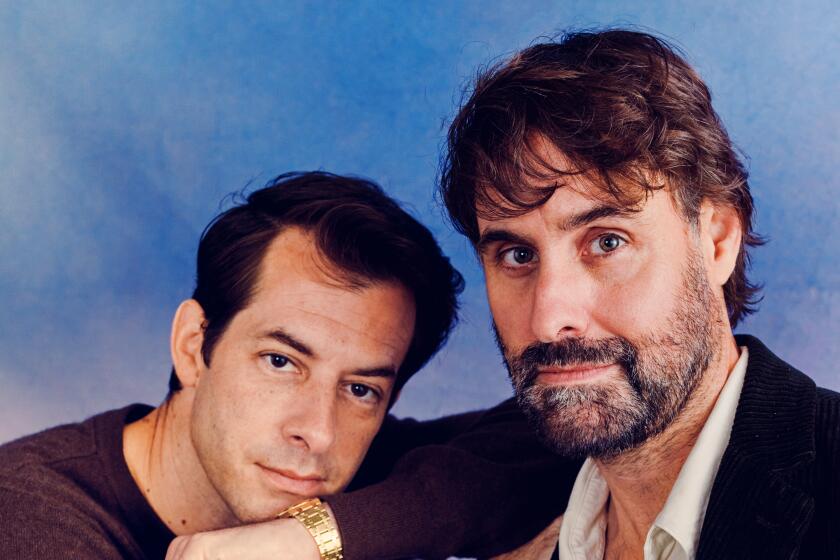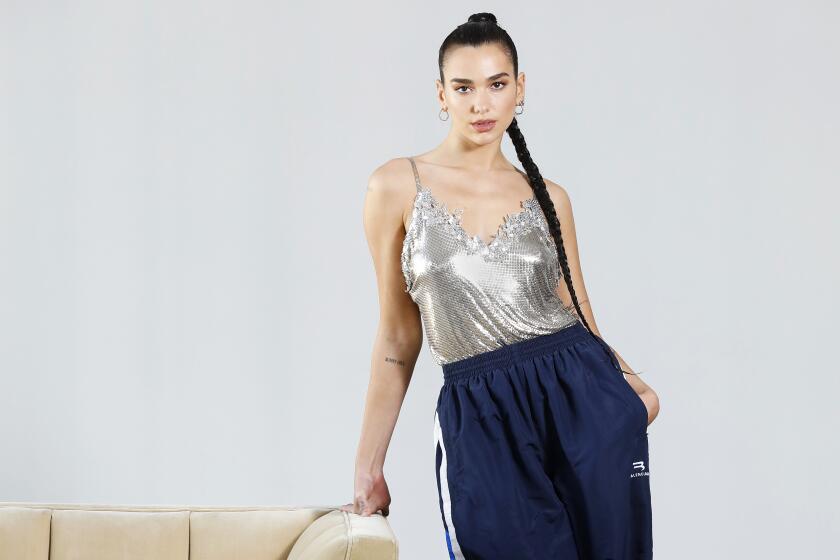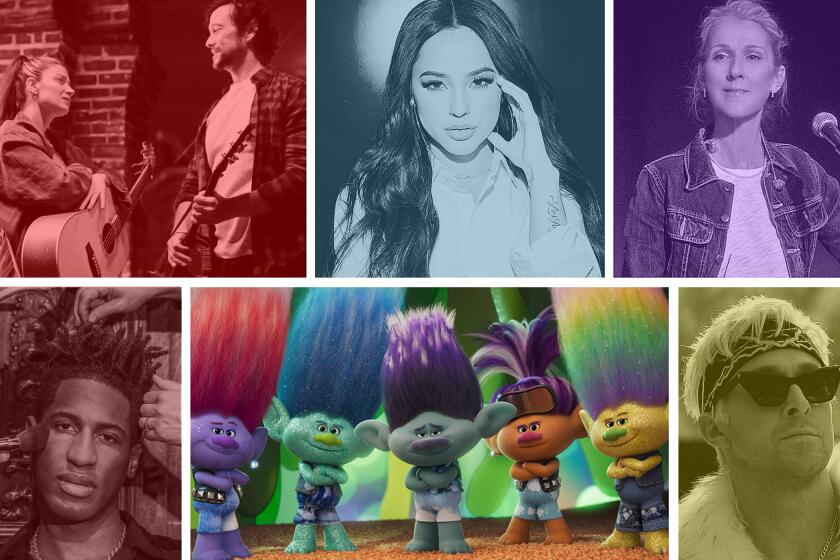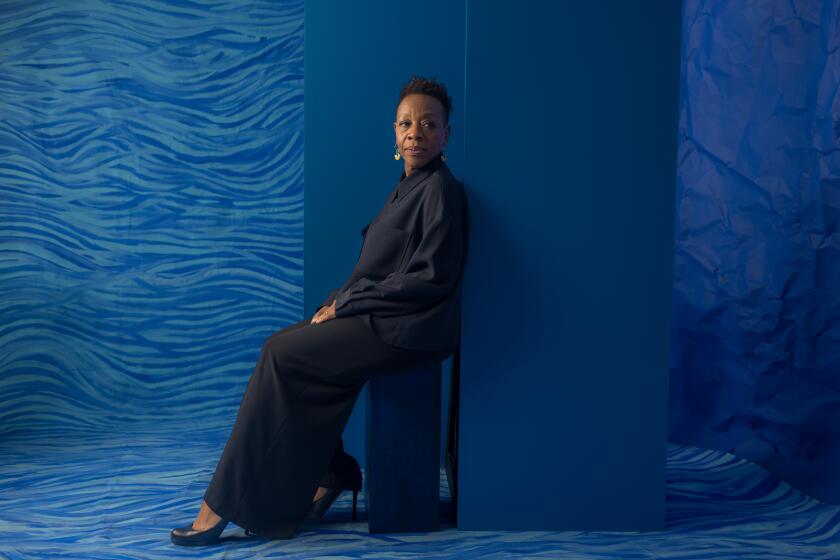- Share via
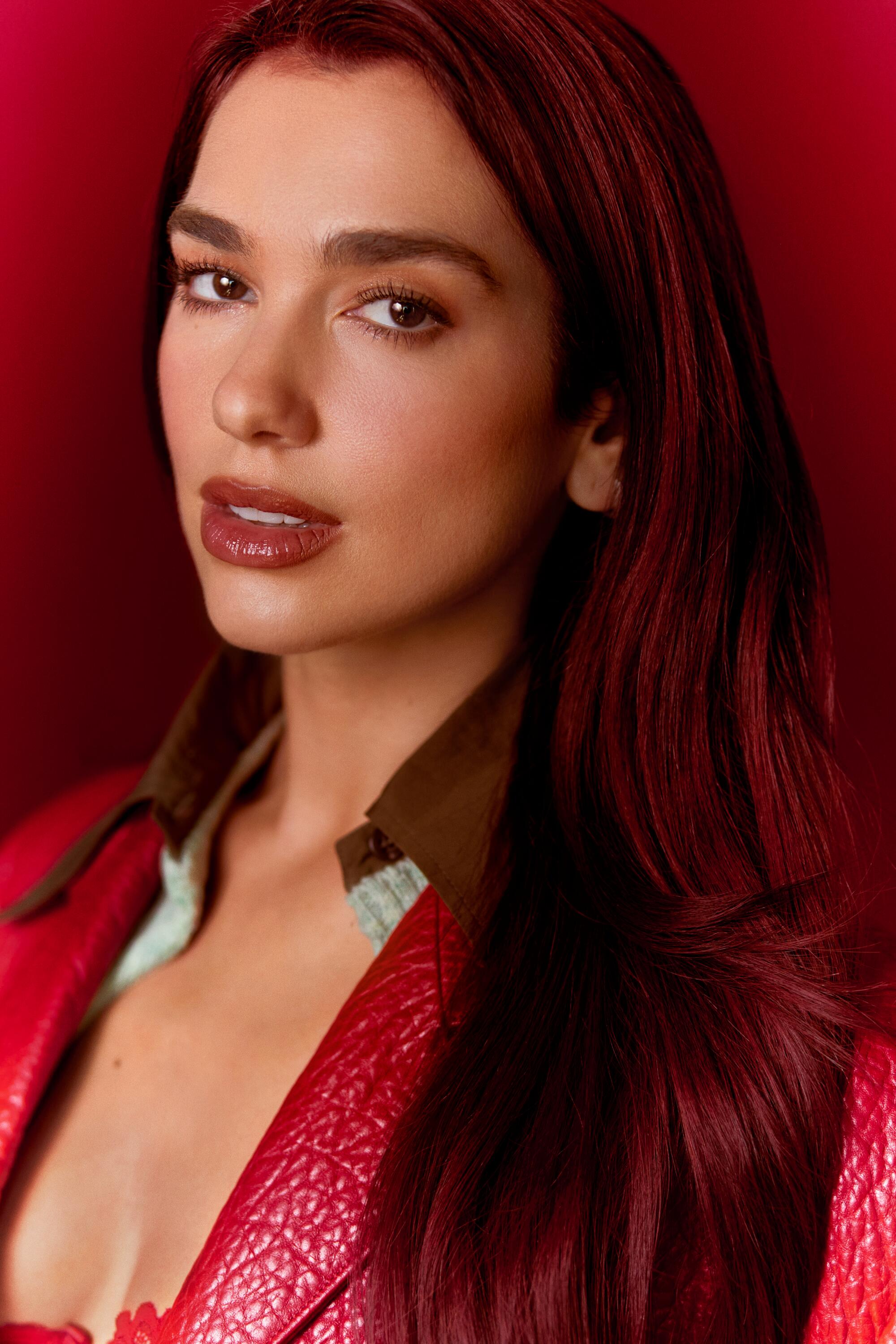
Dua Lipa was on tour — she can’t remember where, it was a bit of a blur — when she got the Instagram DM from Mark Ronson. The decorated producer was working on the soundtrack for “Barbie,” and he wanted her to be part of it. “There are two songs in the film as it stands,” he told her, “and [one] is the dance scene.” (At that point, the other was Ryan Gosling’s endearing “I’m Just Ken.”) If she was interested, Ronson had specific instructions: “These [songs] have to be the ones that paint the picture of the movie.” And one other thing: Director and co-writer Greta Gerwig asked that Lipa’s track be disco, which made sense considering that the 28-year-old pop superstar was riding high thanks to her 2020 mirror ball-infused, Grammy-winning album “Future Nostalgia.”
Lipa was excited, although there was something she hadn’t told the world yet. “I was like, ‘Oh, f—, I’m moving away from [disco] for my new album,’” she recalls thinking. But, ultimately, how could she say no? “I was like, ‘Oh, maybe I’ve got one more in me.’”
The songwriting-producing duo also composed the summer blockbuster’s score and oversaw its hit soundtrack album.
She sure did: It’s a late October afternoon as Lipa finishes up a photo shoot in Santa Monica, reflecting back on the whirlwind that resulted in “Dance the Night,” the ebullient, sneakily bittersweet anthem that scores Barbie’s happiest moment early in the film with her friends — which then gets interrupted by her innocently asking if they ever think about dying. Barbie’s question stops the party cold, but this summer there was nothing slowing down “Dance the Night,” which became Lipa’s fifth U.S. Top 10 hit, recently earning her a Grammy nomination for song of the year.
Sporting magenta hair and a warm demeanor — she’s a big hugger — Lipa discusses how she knew that, despite its effortless strut, “Dance the Night” would present certain songwriting challenges. “I’m so used to going into the studio and talking about myself and my feelings and what’s happening in my life,” she says, laughing self-deprecatingly. “Trying to embody a character that’s [in] somebody else’s world, how do I go in and tell that story? [This was] an assignment, which I hadn’t really done before.”
Using a rehearsal video of the “Barbie” cast working out the dance routine as her guide, she booked time in a New York studio last fall, spending a week on the track. “We got some really interesting melodies and a really great chorus and verses,” she recalls. “We thought, ‘OK, we’ve got something really good.’ But then after living with it for a bit, we’re like, ‘No, we can do better than this.’”
That desire to push herself is an attitude she’s cultivated as she’s quietly been mapping out her follow-up to “Future Nostalgia” since 2021. “When I start writing, I’m pretty much writing every day,” says Lipa. “When I was touring, any time off I had, I was in the studio working on my new record and figuring out what that sound was and where I was heading.” When we speak, she has yet to release “Houdini,” the forthcoming record’s first single, which flaunts a harder-edged sheen and would drop in November. While she’s clearly still setting her sights on the pop stratosphere, it seems apparent that “Dance the Night’s” glittery retro feel was the end of one musical chapter, with “Houdini” representing the next.
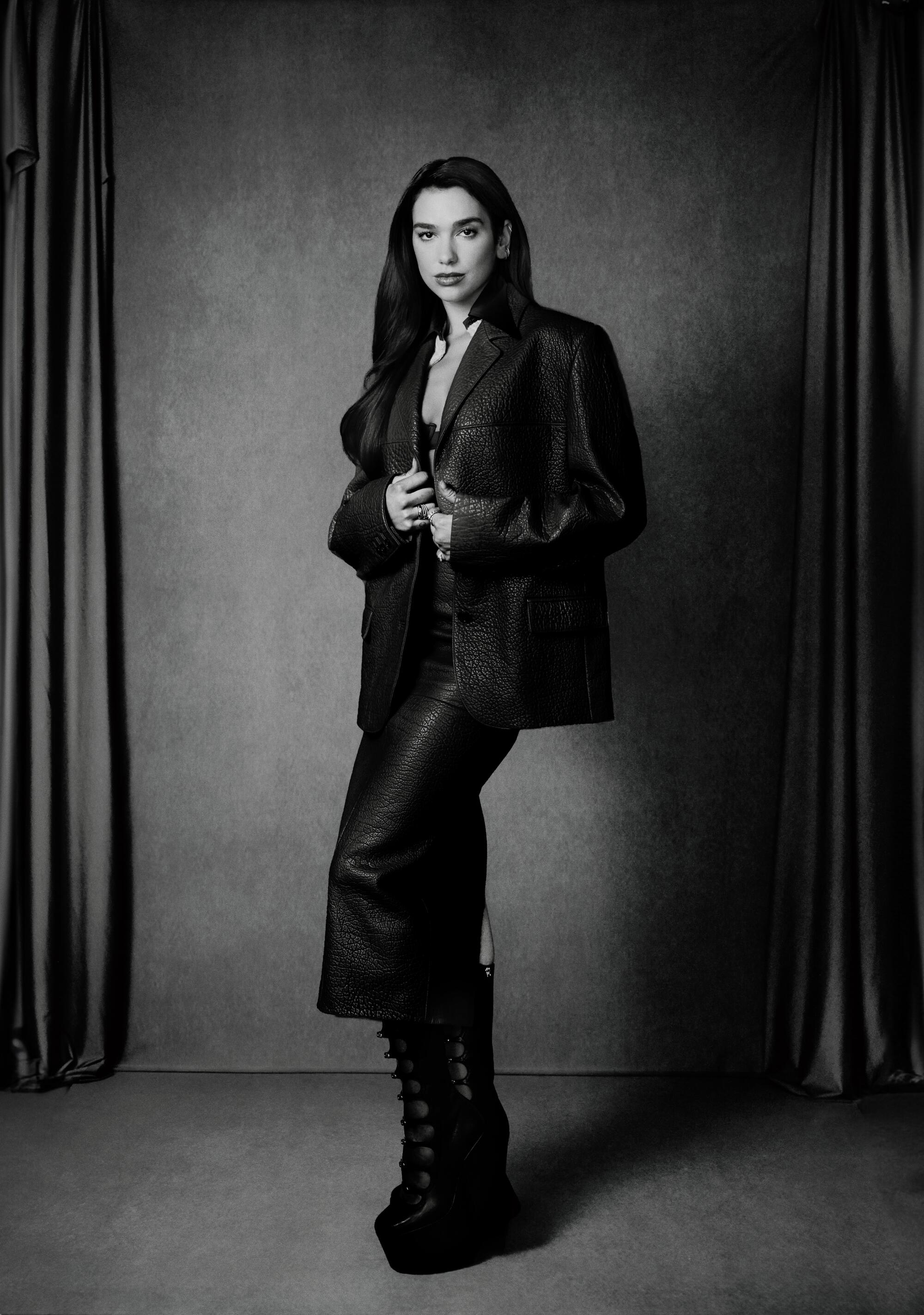
As Lipa sculpted and reshaped “Dance the Night,” she threw out verses and crafted new ones, even incorporating the accompanying scene’s dance choreography into the track so that they were synchronized. “There’s a moment where Margot [Robbie] does this [flirty] hand gesture, and it’s like, ‘OK, let’s do the “Come along for the ride” bit here.’ And then it goes, ‘Turn the music up,’ and she puts her hands up. It was such a fun jigsaw thing — it felt like a little doctor’s operation by the end of it.”
The bygone disco era Lipa bids farewell to on “Dance the Night” was one that, of course, she didn’t live through herself, so the nostalgia was partly for a time she longed to have experienced firsthand. But it also reconnected her to a happy childhood.
Dua Lipa is nominated for six Grammy Awards, second only to Beyoncé. But unlike the music of many of her chart peers, her songs resist a closely personal read.
“Music was such a big part of my life growing up,” she says, “and a lot of that came from my parents playing music around the house. There would be the Bee Gees — or, in primary school, the first thing that me and my friends would dance around to was ‘Dancing Queen’ by ABBA. Disco music has soundtracked my whole life. As I got older and discovered photos from Studio 54, I was like, ‘F—, I wish I was there at that time.’”
Even if her “Barbie” track forced her to learn how to write for a character, she nonetheless invested a lot of herself into it. “When Greta and Mark told me about what part of the film they wanted me to write a song for, it was the pinnacle moment where everything changes from good to bad [for Barbie],” she notes. “I love juxtaposition.” Laughing, she adds, “I love dance-crying. I knew it had to be fun, but I knew it needed a little element of sadness or a little pang of insufficiency, which I think maybe we’re all susceptible to.” Indeed, beneath the tune’s shimmer is the tale of a woman fiercely fending off heartbreak by letting loose, ecstasy and despair dancing as one.
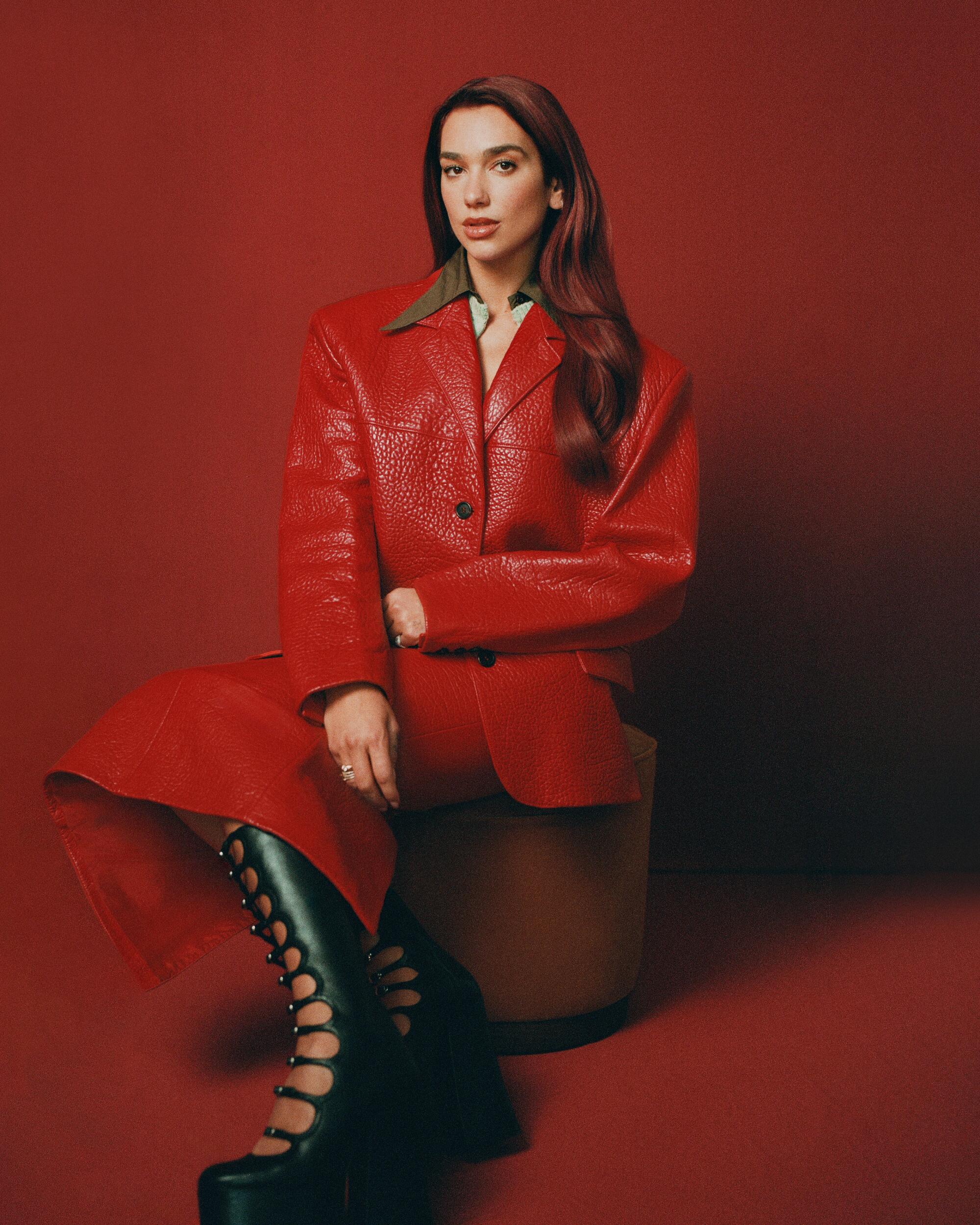
Lipa has been singing since she was a little girl, but movies were part of her entertainment diet as well. Her father Dukagjin — who played in the group Oda — encouraged her to check out such grown-up classics as “The Godfather,” “Goodfellas” and “Pulp Fiction.” “Nothing was off-limits in terms of film,” she remembers, “so my imagination was always quite vivid from a young age.” (Amusingly, her parents did draw the line on her watching “Austin Powers.”)
She’s made inroads into acting as well: She has a small role in “Barbie,” and she’ll be part of Matthew Vaughn’s high-octane action comedy “Argylle.” And she’s still devouring movies, taking suggestions from friends and family. Recently, she caught Ingmar Bergman’s “Persona,” which she loved. “I think once you get past the first five minutes of the really intense snapshots and you get into the story of it, it’s really moving, seeing one character speak pretty much the whole way and how that changes — just the perceptions and the identities shifting.”
Lipa knows a few things about shedding identities: “Houdini” signals a new musical guise for this evolving superstar. But for now, she’s relieved that “Dance the Night” did justice to a movie she knew would be massive, fulfilling her hope of creating a song that could stand on its own, not just be some disposable piece of marketing for a blockbuster. But she’s learned to be patient regarding how the public responds to her music.
The 2024 Oscars Original Song Contenders Playlist includes Americana, Latin dance pop, acoustic guitar-driven ballads and, yes, showtunes.
“My songs tend to have very slow but stable growth over time,” she suggests, smiling. “There’s always something that’s a little weird about them that the more you listen to them, people want to listen to them more. They grow slowly, but they stick around. And that’s all I want: I think the longevity is more important than the instant-hit thing.”
Lipa never intends it that way — the phenomenon just keeps happening. And now she feels confident enough to know when she’s delivered the goods. “I’ve realized that the things that I like aren’t obvious as pop songs,” she tells me. “They’re pop songs, for sure, but the way that the melodies are — or the way that I like the arrangement to be — it’s just not regular in a pop song. It takes people a second to get it.”
More to Read
From the Oscars to the Emmys.
Get the Envelope newsletter for exclusive awards season coverage, behind-the-scenes stories from the Envelope podcast and columnist Glenn Whipp’s must-read analysis.
You may occasionally receive promotional content from the Los Angeles Times.
